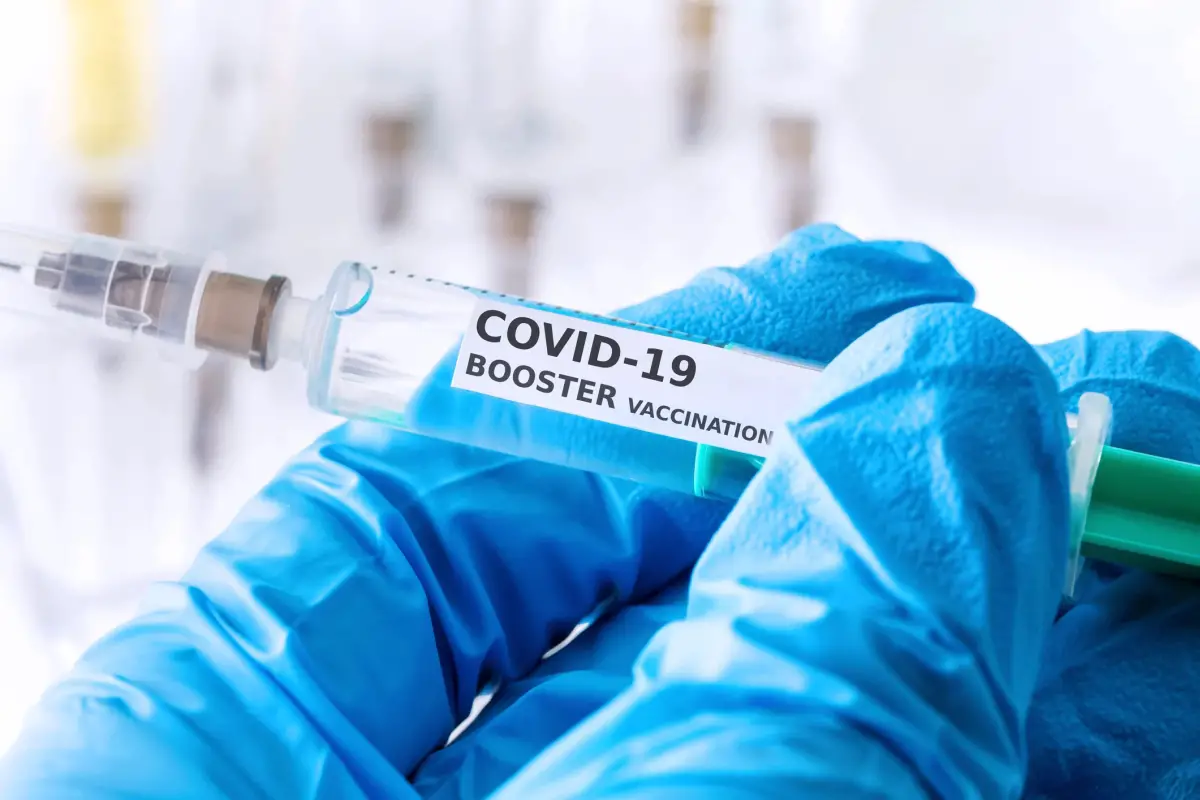That’s a good question and one certainly worth studying. Luckily, as the Wall Street Journal expanded on today, several people have studied that question and the results might be alarming depending on how you look at it.
The topic of vaccinating against the virus that causes Covid-19 has been controversial, to say the least, from the very beginning. Some doctors and scientists warned early on that vaccinating against a quickly mutating Coronavirus will cause the virus to mutate even more quickly. The mutations might be less lethal but they could also end up evading vaccine immunity which is where we are now.
The question isn’t about being “anti” or “pro” vax, it’s about understanding the ramifications of a hastily-approved vaccine and ongoing vaccine booster drive that has been pushed, endlessly and with little question, on the global population.
Some of the science is eye-glazing stuff but here’s the gist of the article. Basically, scientists are seeing the virus mutate repeatedly, as expected, and those mutations are now a game of cat and mouse as vaccine makers create new vaccines. In return, the virus mutates against the vaccine necessitating yet another vaccine. We’re in the midst of this ongoing repeat cycle with no end in sight:
“Such rapid and simultaneous emergence of multiple variants with enormous growth advantages is unprecedented,” a Dec. 19 study in the journal Nature notes. Under selective evolutionary pressures, the virus appears to have developed mutations that enable it to transmit more easily and escape antibodies elicited by vaccines and prior infection.
The same study posits that immune imprinting may be contributing to the viral evolution. Vaccines do a good job of training the immune system to remember and knock out the original Wuhan variant. But when new and markedly different strains come along, the immune system responds less effectively.
Bivalent vaccines that target the Wuhan and BA.5 variants (or breakthrough infections with the latter) prompt the immune system to produce antibodies that target viral regions the two strains have in common. In Darwinian terms, mutations that allow the virus to evade common antibodies win out—they make it “fitter.”
XBB has evolved to elude antibodies induced by the vaccines and breakthrough infections. Hence, the Nature study suggests, “current herd immunity and BA.5 vaccine boosters may not efficiently prevent the infection of Omicron convergent variants.”
The Nature study isn’t the only research coming to the same conclusion. Multiple other studies published in other journals came to similar conclusions:
A New England Journal of Medicine study published last month provides more evidence of the vulnerability caused by immune imprinting. Neutralizing antibodies of people who had received the bivalent were 26 times as high against the original Wuhan variant as they were against XBB and four times as high as they were against Omicron and the BA.5 variant.
Similarly, a study this month in the journal Cell found that antibody levels of people who had received four shots were 145 times as high against the original Wuhan strain as the XBB variant. A bivalent booster only slightly increased antibodies against XBB. Experts nevertheless claim that boosters improve protection against XBB. That’s disinformation, to use their favored term.
From many accounts, the science seems to be flying in the face of the accepted “vaccine science” which seems to keep pushing vaccinations on every age group of the population with little regard for clearly predictable unintended consequences.
If vaccination is meant to protect from infection or from serious illness, then how is it the case that those with multiple vaccine doses actually end up with a greater chance of infection? Another head-scratcher from the WSJ article related to the mutation data:
Notably, workers who had received more doses were at higher risk of getting sick. Those who received three more doses were 3.4 times as likely to get infected as the unvaccinated, while those who received two were only 2.6 times as likely.
“This is not the only study to find a possible association with more prior vaccine doses and higher risk of COVID-19,” the authors noted. “We still have a lot to learn about protection from COVID-19 vaccination, and in addition to a vaccine’s effectiveness it is important to examine whether multiple vaccine doses given over time may not be having the beneficial effect that is generally assumed.”
There’s no question that the early vaccination saved lives in vulnerable populations from the original Covid-19 strand. Among the elderly, in particular, giving them a boost from vaccine-induced immunity may have been the difference between life and death.
However, the ongoing cat-and-mouse game of boosters against an ever-mutating virus might be a game that science simply cannot win. The explicit and ongoing focus on vaccinations versus better treatment options has created somewhat of a vacuum for a situation where vulnerable populations might continue to be more vulnerable than necessary as new variants crop up.
The good news, or perhaps the silver lining here, is that the newest Covid variants, such as the XBB strain, seem much more akin to a common cold or a mild disturbance for most people in almost every age range.
The frustrating part on this side of Covid is that the warnings were there but any dissenting opinions on vaccine efficacy or concerns of ongoing mutations were clearly stifled over the last 2+ years.
Donate Now to Support Election Central
- Help defend independent journalism
- Directly support this website and our efforts
